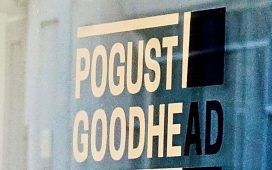The family of a teenager who was stabbed to death have won their fight for a second inquest, after a high court ruling on Friday.
Yousef Makki, 17, died after his friend Joshua Molnar, a former public schoolboy who was 17 at the time, stabbed him through the heart with a knife during a row in the affluent area of Hale Barns, Greater Manchester, in March 2019.
Molnar was acquitted of murder and manslaughter by a jury following a trial later that year, on the basis of self-defence.
After an inquest in 2021, Alison Mutch, senior coroner at South Manchester coroner’s court in Stockport, said the exact circumstances surrounding Yousef’s stabbing “could not be ascertained” and ruled out both unlawful killing and accidental death as reasons for his death.
Yousef’s family, from Burnage, Manchester, said they were “disgusted” with the narrative conclusion and brought a judicial review in 2022.
On Friday, Lady Justice Macur and Mr Justice Fordham, handed down their ruling at the high court in Manchester, ordering a fresh inquest before a different coroner.
Yousef’s family said they were grateful to the judges for their “compassion and understanding” in recognising that “the coroner’s conclusion was unlawful”.
Jade Akoum, Yousef’s older sister, said outside the court: “We now look forward to a new inquest before a different coroner, which we hope and pray will establish clearly the facts about how Yousef died. We will not stop until we have justice for Yousef: for us, for our mum, but first and foremost for him, our beloved king.”
Representing Yousef’s family at the initial inquest, Peter Weatherby KC told the hearing there was a “wealth of evidence” that suggested Yousef’s death was accidental or unlawful.
Weatherby said there were “discrepancies” between what was said during the trial and the version of events given at the inquest.
“This is a death caused by an unlawful weapon brandished in the street by Joshua Molnar and unless there was some terrible accident, or unless Yousef Makki put him in fear, this was an unlawful killing and the coroner simply fails to address those issues in her decision,” he said.
Initially, Molnar told police he had not seen what had happened. Footage from police body-cams showed a tearful Molnar blaming the attack on someone he said had fled. At trial, he claimed Yousef had brandished his own knife first, before he got his out in self-defence. Then, during the inquest, Molnar said he could not remember who had first taken out their knife.
Yousef, Molnar and another teenager, Adam Chowdhary, then 17, had all carried knives that night. All three acted out the role of “middle class gangsters”, Molnar’s trial heard.
Molnar, now 21, was jailed for 16 months for possession of a knife in a public place and perverting the course of justice by lying to police at the scene.
Chowdhary was cleared of perverting the course of justice by the jury at his trial but admitted possession of a flick knife, which he had bought online, and was given a four-month detention order.
The high court judges ruled that the coroner’s inquiry was “insufficiently distilled” and did not explain how she reached her conclusions.
They added: “Consequently, whilst I do not consider that the evidence necessarily all points in one direction, neither can I be satisfied that Her Majesty’s senior coroner (HMSC) has assessed all relevant evidence or analysed the findings of fact she made.
“HMSC’s generic reference to her consideration of the ‘totality’ of the evidence is inadequate to convey that she did ‘strive’ to reach a conclusion upon the evidence. If she did so but was left profoundly unsure, then she did not explain why.”
A date for the new inquest has yet to be announced.









